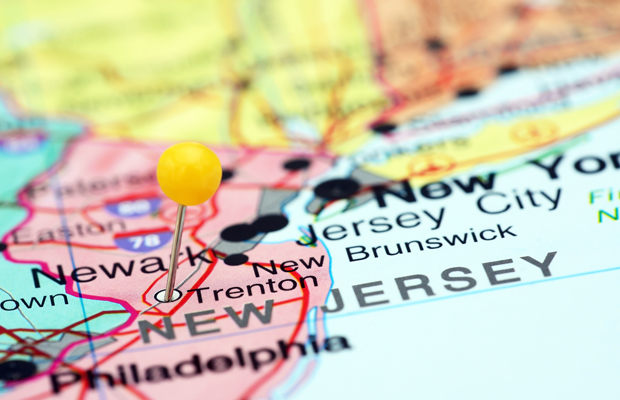 Analysts from Morgan Stanley have predicted sports betting in the U.S. will be a $216 billion market by 2025 – setting up the industry to fail by a wide margin.
Analysts from Morgan Stanley have predicted sports betting in the U.S. will be a $216 billion market by 2025 – setting up the industry to fail by a wide margin.
Back in 2013, Morgan Stanley predicted the regulated online poker and casino market in the Garden State would be worth $1 billion per year and generate $175 million annually in tax revenues. Following the launch of the regulated market, the company cut its forecast in half, and is still way off the mark. Online gambling generated $245 million and tax revenues of not much more than $35 million in 2017.
Morgan Stanley was not the only entity to set unrealistic expectations. Governor Chris Christie predicted the market would be worth $1.2 billion per year, and many other industry “experts” ran figures close to $500,000 once the market matured. The failure of the industry to achieve these lofty goals is one of the reasons other states have dragged their heels to pass legislation regulating online poker and casinos.
Other unrealistic predictions from Morgan Stanley include that – by 2020 – online gambling will generate $9.3 billion per year (it´s yet to achieve half that figure in five years in total) and that twenty states will regulate online gambling. Now, according to an article in the NY Post, the company´s analysts have predicted the regulated sports betting market will be worth $216 billion by 2025.
Why Morgan Stanley is Likely to be Wrong Again
 Morgan Stanley´s bullish prediction is based on the average loss experienced by Australian and UK sports bettors multiplied by the population of the U.S. – a rather fanciful way of calculating market value considering the Australian, UK and U.S. markets are very different in structure. Furthermore, the prediction assumes every state in the U.S. will regulate sports betting within the next seven years.
Morgan Stanley´s bullish prediction is based on the average loss experienced by Australian and UK sports bettors multiplied by the population of the U.S. – a rather fanciful way of calculating market value considering the Australian, UK and U.S. markets are very different in structure. Furthermore, the prediction assumes every state in the U.S. will regulate sports betting within the next seven years.
That´s not going to happen. The larger southern states are unlikely to regulate sports betting when they already don´t allow commercial gambling, stakeholders in California [geolink href=”https://www.usafriendlypokersites.com/opening-salvos-fired-in-battle-for-ca-sports-betting-market/”]can´t agree on anything[/geolink], Floridian voters are about to put a stop [geolink href=”https://www.usafriendlypokersites.com/the-implications-of-florida-amendment-3-for-online-poker/”]to any expansion of gambling[/geolink], and legislators in Illinois are taking so long [geolink href=”https://www.usafriendlypokersites.com/why-regulating-online-gambling-in-illinois-is-complicated/”]to pass gambling legislation[/geolink] that 2025 will have come and gone by the time there is any meaningful progress in the Prairie State.
The argument that states will regulate sports betting because they need the money from tax revenues is poppycock. If this were the case, more than four states would have regulated online gambling by now. In addition, a recent report published by [geolink href=”https://www.usafriendlypokersites.com/study-warns-gambling-taxes-are-unreliable-income-sources/”]Pew Charitable Trusts[/geolink] has shown “sin taxes” to be an unreliable source of revenue that could cause budget deficits in the future.
Offshore Sports Betting Will Continue to be a Factor
Even if every jurisdiction in the U.S. were to regulate sports betting, the popularity of offshore sites will limit how much is bet on the regulated market. The American Gaming Association has guesstimated $150 billion each year is wagered with offshore operators – who not only have an established clientele, but who are also able to offer better odds on sporting events than regulated operators.
Take tonight´s NFL football game between the Carolina Panthers and the Pittsburgh Steelers as an example. DraftKings (regulated) has the game priced up at Panthers +170 and Steelers -210, whereas BetOnline (offshore) has the game priced up at Panthers +175 and Steelers -205. Whichever team you bet on, you will get better odds offshore than through a regulated operator.
The difference in odds may only be minimal for a sports bettor wagering $10, but for larger volume bets and for parlays over a selection of games, the difference in odds can be significant. This will not go unnoticed for very long by sports bettors in regulated markets, and my expectation is that the regulated market will contract once the honeymoon period of regulated sports betting is over.
Will We See History Repeating Itself?
The recent history of gambling legislation in the U.S. is that, if you set unrealistic expectations and the market fails to deliver, you discourage further expansion. This was certainly the case in respect of online poker and online casinos, and is likely to be the case for regulated sports betting. So why has Morgan Stanley made such a reckless and (IMO) unconsidered prediction?
A little investigative work will uncover that Morgan Stanley has a motive for setting unrealistic expectations (the company is currently advising MGM on a possible bid for Caesars Resorts), but when the prediction goes pear-shaped, what will happen then? Will all the company´s analysts be out of job? Will MGM collapse? And, more importantly, will it stop other states passing legislation to regulate sports betting? That´s the real danger in setting unrealistic sports betting expectations.




